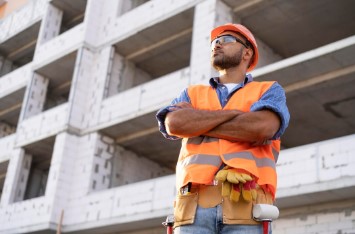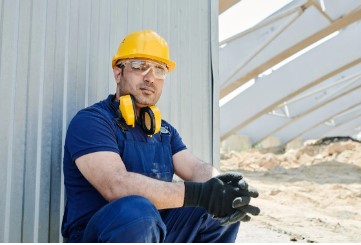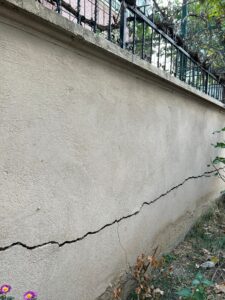Tackling a construction project, whether a dream home renovation or a complex commercial build, requires a skilled leader. This is where the general contractor (GC) steps in as the leader who oversees the entire construction process.
Understanding the rules, responsibilities, and duties of a general contractor can empower you, the homeowner or project owner, to make informed decisions. This article will tell you everything you need to know about the role of a general contractor.
What is a General Contractor?

A general contractor is the central figure who oversees every aspect of a construction project, from start to finish.
They hire and manage specialized subcontractors, like plumbers and electricians, ensuring each part of the construction flows together without any hitch.
They are responsible for adhering to building codes and safety regulations, keeping the project on schedule and within budget, as well as acting as the main point of contact for the client.
General Contractor Responsibilities and Duties

In general, the responsibilities and duties of a general contractor can be broadly categorized into three main areas: planning, execution, and oversight.
Planning
Planning lays the groundwork for the entire construction project. Here, the GC will:
1. Develop a project plan
This includes creating a detailed schedule, budget planning, and specifying which materials and equipment that are needed for the project.
2. Secure permits and licenses
They will navigate the bureaucratic process to obtain all necessary permits and ensure compliance with building codes.
3. Hire and manage subcontractors
They will also have to find qualified subcontractors, which are specialized contractors that focus on certain aspects of construction.
For example, plumbers, electricians, or even contractors who specialize in retaining wall products.
Execution
Execution focuses on the physical construction process. The general contractor is responsible for:
1. Ordering and managing materials:
The general contractor will ensure that the materials are delivered on time and within budget. They are also responsible for maintaining a safe and organized job site.
2. Scheduling and managing subcontractors:
The GC is also responsible for coordinating the arrival and work of various subcontractors to avoid delays and ensure a smooth workflow.
3. Quality control
They’ll inspect the work performed by subcontractors and their own crew to maintain high-quality standards throughout the project.
Oversight
Oversight makes sure that everything runs smoothly and according to plan. Here, the general contractor will:
1. Maintain communication
The general contractor acts as the central point of contact for the client. They keep the client informed of progress, address any concerns, and manage expectations.
2. Manage the budget
Monitoring expenses and making adjustments as needed is essential to stay within the agreed budget.
3. Ensure safety
The GC should also prioritize everyone’s safety by enforcing regulations, conducting inspections, and creating a safe work environment.
4. Final walkthrough and handover
Once the construction is complete, the GC will conduct a final inspection with the client to make sure that everything meets their satisfaction before officially handing over the project.
Types of General Contractors

General contractors may be categorized depending on their area of expertise or which specific type of construction project they undertake. For example:
1. Residential General Contractors
This type of general contractor specializes in building, renovating, and maintaining homes or other residential structures.
2. Commercial General Contractors
General contractors that are focused on the construction of commercial buildings, offices, retail spaces, and other non-residential properties.
3. Industrial General Contractors
This type of GC are expert in building and maintaining industrial facilities, factories, warehouses, and power plants.
Some general contractors may also have a niche within these categories and they focus on specific project types such as kitchen and bath remodelers and historical restoration contractors.
General Contractor vs Independent Contractor
Typically, general contractors manage the entire project, hiring and overseeing specialists (subcontractors) for various tasks. Meanwhile, independent contractors are specialists brought in for a specific job, like plumbing, and typically work directly with the client or under a general contractor.
To put it simply, general contractors lead the project, while independent contractors focus on their own skilled tasks.
Why Do You Need a General Contractor License?
There are two big reasons why you might need a general contractor license, which is:
1. Legal Compliance
In most areas, working as a general contractor without a license is illegal. This can protect consumers by ensuring contractors have met competency requirements and are held accountable for their work.
2. Credibility and Opportunity
Having a general contractor license signifies professionalism and adherence to regulations. This can boost your credibility with clients and allow you to take on larger, more complex projects.
Solution for Your Problem in Manufacturing and Contraction
Because a general contractor is the central figure who oversees all aspects of your project, it is important to pick the right person. With the right GC, you can rest assured that your construction project will run smoothly without any hitch.
You should also make sure that you pick the right material for your projects, as high-quality materials can ensure your building’s durability and longevity.
If you’re looking for sturdy and eco-friendly construction material, InfraBlock can be your trusted option. InfraBlock offers innovative and sustainable retaining wall solutions, including interlocking blocks and counterweights.
Build smart and sustainable. Contact us today to explore our environmentally friendly retaining wall solutions and find the perfect fit for your project!




